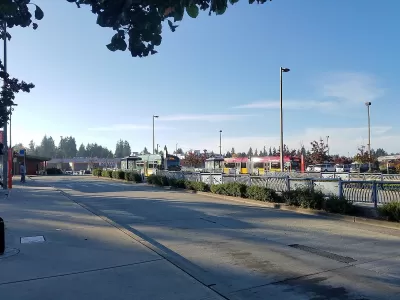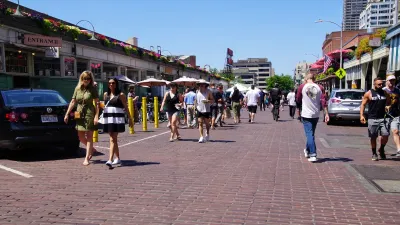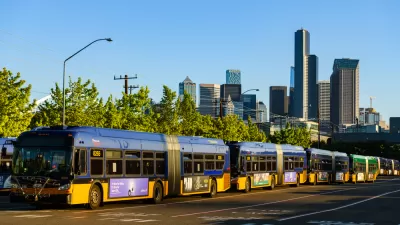The agency cites the high cost of the program and a county code that bars restroom facilities from transit centers as reasons for ending the six-month pilot.

King County Metro plans to remove two public restroom facilities at its transit centers, despite what The Urbanist’s Ryan Packer calls “promising results.”
As Packer explains, “Central Puget Sound has a dearth of public restrooms, particularly at transit facilities, with the few available often accessible for limited hours and many riders dependent on nearby private businesses for restroom access.” The six-month pilot was designed to explore options to expand restroom access.
“However, the pilot program’s high costs, mostly associated with providing 24-hour security to both transit centers to monitor the restrooms, will likely prove the biggest deterrent to making them permanent.” The program cost $568,567 to operate — with roughly 70 percent spent on security personnel.
Councilmember Rod Dembowski, who championed the project, said hiring 24/7 security may have been ‘overkill.’ Dembowski added, “There’s a long history in Seattle with struggling with public restrooms, they can be costly, difficult to maintain, but I think for the usability of our system and the riders, I think it’s something we ought to continue to work on.”
FULL STORY: King County Plans to Close Transit Center Restrooms Despite Promising Pilot

Planetizen Federal Action Tracker
A weekly monitor of how Trump’s orders and actions are impacting planners and planning in America.

Canada vs. Kamala: Whose Liberal Housing Platform Comes Out on Top?
As Canada votes for a new Prime Minister, what can America learn from the leading liberal candidate of its neighbor to the north?

The Five Most-Changed American Cities
A ranking of population change, home values, and jobs highlights the nation’s most dynamic and most stagnant regions.

San Diego Adopts First Mobility Master Plan
The plan provides a comprehensive framework for making San Diego’s transportation network more multimodal, accessible, and sustainable.

Housing, Supportive Service Providers Brace for Federal Cuts
Organizations that provide housing assistance are tightening their purse strings and making plans for maintaining operations if federal funding dries up.

Op-Ed: Why an Effective Passenger Rail Network Needs Government Involvement
An outdated rail network that privileges freight won’t be fixed by privatizing Amtrak.
Urban Design for Planners 1: Software Tools
This six-course series explores essential urban design concepts using open source software and equips planners with the tools they need to participate fully in the urban design process.
Planning for Universal Design
Learn the tools for implementing Universal Design in planning regulations.
New York City School Construction Authority
Village of Glen Ellyn
Central Transportation Planning Staff/Boston Region MPO
Institute for Housing and Urban Development Studies (IHS)
City of Grandview
Harvard GSD Executive Education
Regional Transportation Commission of Southern Nevada
Toledo-Lucas County Plan Commissions





























